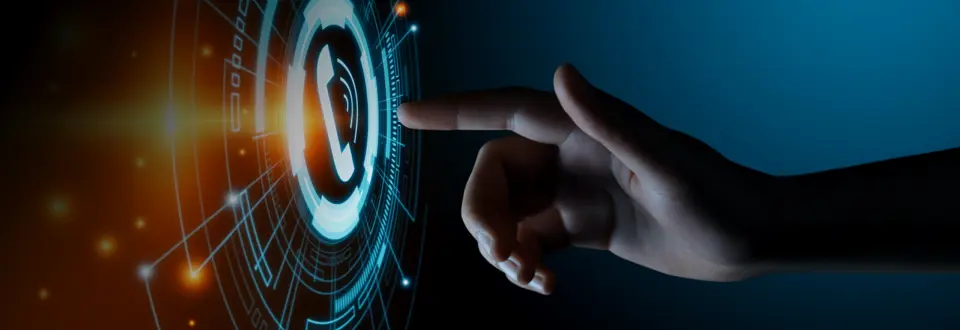Taking the lead & get its act together

The Vietnam National Petroleum Group (Petrolimex/Group) is the only enterprise in the industry and trade sector to receive theVietnam Environment Award 2017. On this occasion, Petrolimex Deputy Director General Vuong Thai Dungspeaks to the Cong Thuong (Industry & Trade) magazine about environmental protection.The Vietnam National Petroleum Group (Petrolimex/Group) is the only enterprise in the industry and trade sector to receive theVietnam Environment Award 2017. On this occasion, Petrolimex Deputy Director General Vuong Thai Dungspeaks to the Cong Thuong (Industry & Trade) magazine about environmental protection.
Keeping ourselves safe!
- Currently, environmental protection is one of criteria for enterprise sustainable development. Could you please elaborate how Petrolimex perceives the issue and acts to effectively protect the environment?
Vietnam has only just introduced criteria and methods to determine the sustainable development of enterprises.
For a long time, Petrolimex itself has always considered safety in general and environmental protection, and fire and explosion prevention in particular a very special task because:
First, it ensures the safety oflabourers – the most important resource of enterprises.
Second, it is the premise to ensure the efficiency of production and business activities.
Therefore, environmental protection is first and foremost to ensure safety for ourselves, enterprise’s production and business activities, and generally speaking for the whole society.
- How does Petrolimex feel the pressure when the Group has to effectively develop production and business activities whilst ensuring environmental safety?
In my opinion, saying pressure is not quite proper here, but I can make it a bit clear:
For petrol, environmental protection, and prevention of fires and explosions always come together because when it is not safe for the environment, it is very easy to lead to fire and explosion risks.
Thus, one work simultaneously ensures two goals, and we always place the task of fire and explosion prevention and environmental protection in parallel with the task of corporate production and business activities.
- How does Petrolimex view the role of environmental protection in production and business activities to achieve sustainable development?
Talking about the environment is very broad, but for environmental protection in petroleum business there are specific issues.
Let’s say you work in a petroleum-based establishment, if you fail to protect the environment, it is dangerous that fires and explosions might occur.
If fires and explosions occur, first and foremost, they damage enterprise employees’ life.
The loss of labourers’ life or health is in fact the loss of enterprise, which damages the enterprise’s production and business efficiency. More seriously, it can cause disasters affecting the environment and social security.
Therefore, from the Group’s top leader to labourers who directly work at petrol stations, we always determine that if we well protect the environment we care first for ourselves and for each individual; then for the enterprise’s sustainable development, and also for the general environment and the whole society.
We think that: environmental protection is not just about exhorting, it is about consciousness of our and enterprise’s existence, safety standards, equipment investment, and skill training to ensure that all Petrolimex labourers can act effectively and consistently. That’s why we call itTask No 1.
Be proactive, take the lead
- It is known that Petrolimex has always strictly abided by environmental protection regulations; and stayed proactive in the work of environmental protection. Could you please elaborate on these practices?
With over 60 years of working in the petroleum sector, Petrolimex has always been active in environmental protection.
Relating to environmental protection in the petroleum sector, it has lots of work to do.
As we all know, our economy and science, including environmental protection, remain underdeveloped as compared to countries in the region and the world.
Thus, there is a huge number of works for Vietnamese enterprises generally speaking and for Petrolimex in particular.
Over the past years, Petrolimex has continuously and actively implemented numerous solutions for environmental protection.
First, to disseminate information about environmental protection and call for all Petrolimex labourers to attach much importance to environmental protection.
Second, to invest considerable resources in upgrading technology and facilities to gradually satisfy strict requirements of the environment.
And we have done a lot in this field, for example:
First, we installed the Vapour Recovery Unit in the whole system of Petrolimex petrol stations ten years ago.
Petrolimex is the first enterprise and still the only enterprise in Vietnam that has installed the Vapour Recovery Unit in its petrol stations.
Why do we need to do so?
Because when petrol is pumped from tank truck into storage tank at petrol stations, the air inside the storage tank escapes into the atmosphere, bringing along petrol in the form of steam.
If they are not recovered, the vapours will “freely escape” into the environment, potentially causing environmental pollution and explosion risks.
But Petrolimex’s Vapour Recovery Unit allows the recovery of all vapours, preventing them from freely flowing in the air.
This has been done for nearly 10 years. We act on our own initiative as there is no legal regulation requiring us to do so. We take the initiative in the work.
Second, all storage tanks are installed with floating roofs.
The external floating roof which floats on the surface of petrol in the tank and rises or falls as product is added or withdrawn from the tank prevents the natural evaporation of petrol contained in the tank; especially in the process of loading and discharging petrol as mentioned above. Therefore, there is no harm to the environment.
Third, recently we installedthe Vapour Recovery Unit (VRU)at Duc Giang Oil Depot (Petrolimex Hanoi); and officially put it into operation on the occasion of the 60th anniversary of Petrolimex.
It is vapour recovery, but on a larger scale, which means from storage tanks into tank trucks and tank cars.
Besides these big projects, we have also carried out many other programmes, for instance, waste water and waste treatment programmes.
Since 2005, before regulations on hazardous waste management came into existence, the Group proactively built workshops to burn oil-contaminated waste generated at petroleum projects.
At present, the waste oil residue treatment workshop at the Nha Be Oil Depot has been upgraded and equipped with state-of-the-art facilities, meeting requirements and being licensed by the Ministry of Natural Resources and Environment for hazardous waste management practice.
For waste water treatment at oil depots, the Group has in recent years invested hundreds of billions of dong to upgrade, and renovate systems and devices treating oil-contaminated waste water to meet the increasingly strict requirements for environmental protection.
It can be said that Petrolimex has been very proactive in environmental protection.
I would like to stress that: We did all these works due to our sense of responsibility for our labourers, for the enterprise and the environment; as there is no single State or legal regulation that obliges us to do so.
Petrolimex makes a difference
- How has Petrolimex used resources to prevent oil leakage, minimise impacts on the environment as well as ensure clean and safe environment for labourers?
Besides technical innovations and solutions developed by the contingent of Petrolimex engineers and labourers; we have studied, selected and applied advanced technologies and devices transferred by countries in the region and the world.
Actually, what Petrolimex has done is not something new. In the world, they have done it for ages but in Vietnam only Petrolimex does.
However, it is easier said than done as the studies must ensure that the technologies and devices are suitable with operation of and affordable to the enterprise to facilitate the actual implementation.
We are all well aware that the cost of environmental protection is pretty high.
Thus, it is understandable why certain enterprises investing in Vietnam have caused environmental incidents. They do not properly treat waste water and waste, resulting in serious environmental pollution as reported by local media over the past time.
They do understand damage to the environment but huge expenditure for environmental protection will reduce the profits of enterprises during their time in Vietnam.
I refer to this to highlight the sense of responsibility and great determination of Petrolimex. We understand that investment in environmental protection will lessen our profits but will make our enterprise develop sustainably whilst protect the health and safety of labourers.
In my opinion, that isPetrolimex’s difference,Petrolimex’s culture, andPetrolimex brand that we all feel so proud of.
People play decisive role
- So, a substantial investment will solve the root of an enterprise’s environmental issues, won’t it?
That is a significant element, but not a core one in environmental protection.
I think the most important thing is the awareness of labourers, the enterprise; each staff and the head of each enterprise.
Technologies and devices are indispensable in environmental protection and also we can not fall short of funds, but the decisive element is the awareness and consciousness of people and people’s responsibility towards the environment.
Human beings remain a decisive element!
- Could you please elaborate on the necessity of environmental management personnel in the enterprise? How large is the staff for each Petrolimex member company to make sure environmental protection be effective?
We have a contingent of managers and technicians responsible for environmental protection from the Group to member units.
Depending on the scale and nature of each member company’s field of operation, the number of staff assigned to the duty varies, but all member companies have people specialised in this work.
There is a Group leader in charge of this work, and similarly a leader of each member unit will oversee the work and they are assisted by a group of people who provide advices and recommendations of policies, regulations as well as solutions for environmental protection.
At Petrolimex, not only employees who are directly involved in environmental protection but all Petrolimex employees across the country are well aware that environmental protection is the investment for development, and that they protect the environment through each specific daily work.
Reality-based aspiration

Vuong Thai Dung- Petrolimex Deputy Director General
- In the trend of integration and development, do you satisfy with what Petrolimex has done for environmental protection? Or what should be done more?
As I mentioned above, environmental work has much to do and Petrolimex itself has done a lot of work; however, we remain unsatisfied with what we have achieved.
In the current integration trend, social responsibility, responsibility towards the environment of all Vietnamese enterprises are growingly attached much importance to, thus, we need to do much more.
More importantly, I think we have to do real things, real to us, labourers, enterprise and the whole society; rather than do things in order to deal with State regulations and environmental inspection agencies.
That is the humanity in business, a crucial factor for the existence of a business.
- From its practical works, which recommendations does Petrolimex have for environmental protection?
We have quite a few legal regulations on environmental protection. Besides the Law on Environmental Protection, there are Government decrees and sectors’ circulars for implementation instructions. That sounds good.
Nevertheless, there still exist overlapping/complicated contents. If there is a close coordination in reviewing and listening to feedback from businesses and society to make implementation feasible and practical, it will be better.
We have aspirations, but we should also be more practical in the development and enforcement of environmental protection law.









